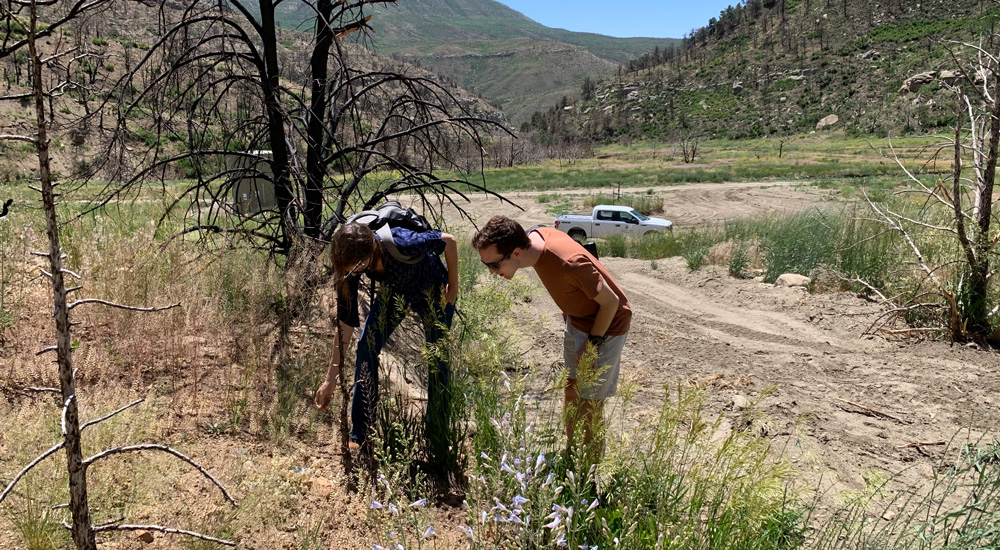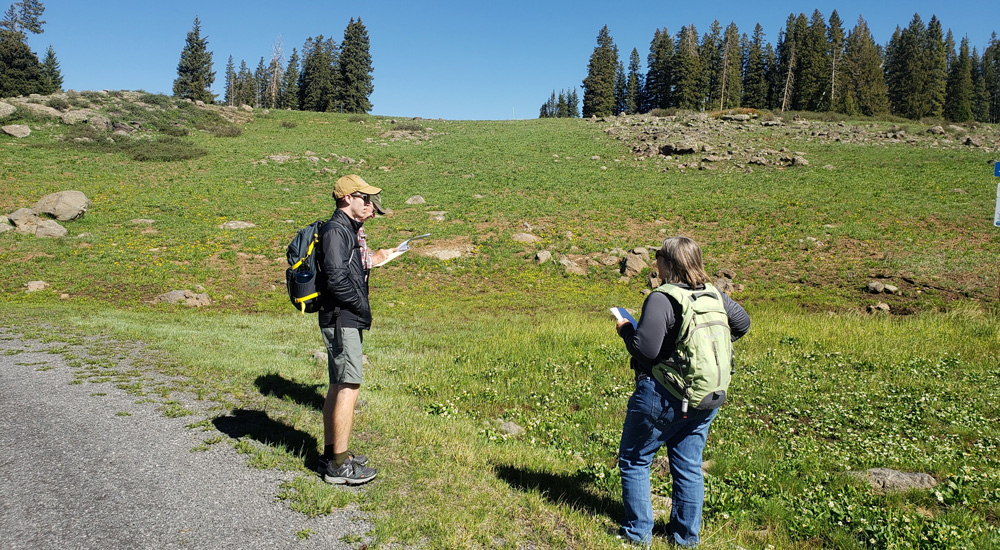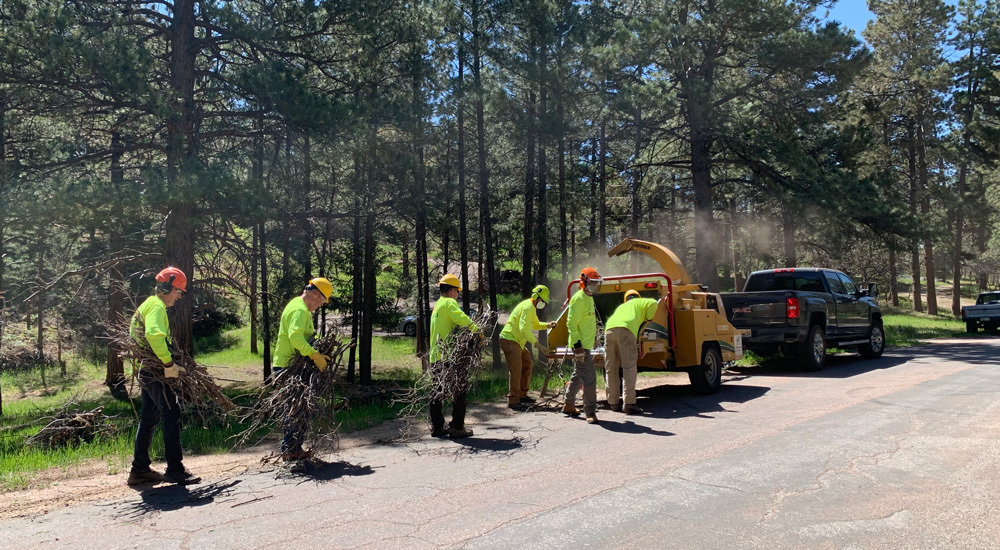Part of a special series highlighting College of Liberal Arts students and their summer internships with CSU Extension

By Elise Dietrich
When searching for an internship, Aidan Lyde set out to find one focused on tangible, real-world issues that would make a difference in his local community. He came across the opportunity to work on wildfire risk mitigation and environmental justice issues which focused on bridging the disparities among wildfire-resilient and wildfire-vulnerable communities. Environmental justice aims to ensure that all people have fair treatment and equal access to a safe and sustainable environment, as well as equal protection from environmental harm. Privilege, power, and oppression all affect the way in which people are impacted by our environment and by climate change which increases the risk of wildfires.
“With a concentration in political science, I was really looking forward to engaging with the environmental justice aspect of the internship. Unlike many other opportunities, this internship promised the ability to engage directly with a diverse range of stakeholders and understand from their perspective how wildfires were impacting their communities,” he says.
Lyde was assigned to the Community Networks in Fire-Environment Resilience (CoNIFER) Project, which focused on improving the understanding of wildfire risk mitigation planning by studying stakeholders and their relationships in Community Wildfire Protection Plans (CWPPs) in Colorado. The project uses CWPPs and other collaborative wildfire planning processes to study how these processes are formed, how they play out over time, and ultimately how they contribute to risk mitigation.

His primary focus during the internship was conducting fieldwork for the CoNIFER project. He traveled across the state to interview key actors involved in Community Wildfire Protection Plans. He asked participants about their role in the development of the CWPPs, including the planning process as well as the effectiveness and extent of mitigation project implementation.
“In addition, I worked on coding the CWPPs. This involved identifying proposed risk mitigation actions in the plan, classifying them based on certain criteria, and creating a roster of the CWPP participants in order to map the network of people involved in CWPP planning over the past two decades,” he says. The ‘coding’ Lyde used differs from traditional computer programming in that it is concept-driven. It is a tool used in qualitative research to approach the data with a developed system of codes looking for specific concepts or ideas in the text in order find links between them. For the CoNIFER project, coding was used to identify wildfire risk mitigation actions and classify them based on their type and other characteristics.
Gaining more experience in quantitative work, particularly related to data collection and processing was a personal goal of Lyde’s. “While most of my coursework in the College of Liberal Arts has been qualitative focused, I took an International Studies Research Methods class which focused on qualitative and quantitative research studies. I wanted to actually put that class into practice and learn how to design and carry out a research project,” he says.

As the youngest and most inexperienced researcher on the team, Lyde had to learn very quickly what it meant to design and carry out a research project. “I started with coding CWPPs, which is a very detailed and intensive form of data analysis. I had to seek a lot of help from my supervisors, colleagues, and existing examples of already coded documents. I was also learning for the first time how to develop interview questions, contact potential participants to coordinate meeting times and locations, and actually interview individuals in a research context,” he continues.
He credits the internship experience for giving him the push he needed to develop better interpersonal and communication skills. “I think interpersonal skills were incredibly important. I was not only working with a large research team to coordinate our fieldwork, interviews, coding, and research design, but I was also interviewing a very diverse group of people across the state often with different backgrounds, perspectives, and conditions in their communities,” he says.
“It was great to learn about on-the-ground Extension work… I am committed to a career focused on environmental public policy. I think it is critical that I understand the values, needs, and perspectives of the communities that my work and policies may impact.” — Aidan Lyde
He also had the opportunity to gain experiential learning by shadowing a CSU Extension Agent. “It was great to learn about on-the-ground Extension work. For example, I helped create a fire-adapted plants presentation, identified native plant species on the Grand Mesa for an upcoming class, and toured the Pine Gulch Fire burn scar,” he says. This experience strengthened Lyde’s commitment to a career in public service and community-engaged work. “I am committed to a career focused on environmental public policy. I think it is critical that I understand the values, needs, and perspectives of the communities that my work and policies may impact,” he says.
While wildfires can spur public attention and facilitate action, Lyde recognizes how quickly the attention fades away. Projects such as CoNIFER and the Community Wildfire Protection Plans help bring together diverse communities to address mutual concerns for public safety, community sustainability and natural resources by incorporating comprehensive and locally supported solutions for wildfire mitigation. “The most successful mitigation plans and programs were those that engage with the community, listen to their input, and then involve them in the planning process,” says Lyde.
Internships: The Practical and Applied Side of the Liberal Arts
The CSU Summer Extension Internship program gives students the opportunity to take their research and expertise into the field to help communities across Colorado in the areas of Natural Resources and Sustainability, Food and Agriculture, Youth Development, Economic and Community Development, Health and Well-Being, and Emergency Planning and Resources.
In summer 2022, the College of Liberal Arts had 18 students participate in an Extension internship.